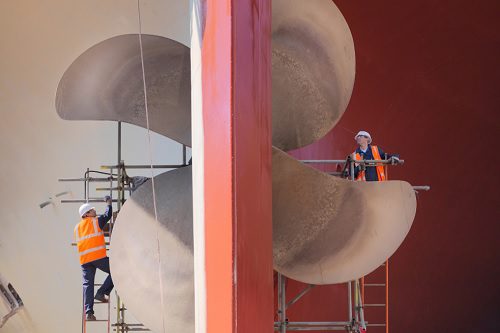Mid-sized businesses key to the UK’s economic recovery

Authored by RSA
Gross value added (GVA) from mid-sized businesses grew by nearly 40% between 2009 and 2019, before dipping slightly in 2020. GVA from mid-sized businesses is also expected to have grown in both 2021 and 2022Despite their importance, a quarter (25%) of mid-sized businesses say government support and finance are not sufficient to help their business growRSA partners with investor and entrepreneur Steven Bartlett to highlight the importance of mid-sized businesses to the wider UK economic recovery
A new report, ‘The Mighty Middle Market’ released by RSA Insurance, in partnership with the Centre for Business and Economic Research (Cebr) reveals that mid-sized businesses* offer a beacon of hope for the British economy, with this sector having a critical role in driving stability and growth.
The report shows that 71% of mid-sized businesses are positive about their outlook despite the current economic environment. Compared to small businesses, mid-sized businesses are also more likely to have exceeded their targets in the last year (32% compared to 45%, respectively), further demonstrating their importance as a valuable powerhouse of growth, employment opportunities and tax receipts at a time of great economic challenge.
Mid-sized businesses are key to success but are the unsung hero of the British economy
The number of mid-sized businesses has been growing every year since 2010 and consistently delivers disproportionately in terms of economic contribution relative to their size, accounting for around 1.5% of all businesses but 13.1% of employment in 2022.
Despite this, the report reveals that society often overlooks this business cohort in favour of smaller businesses or larger corporates. Analysis of online conversations over the past 12 months sheds light on this issue, with small businesses enjoying 60 times more mentions in the news and on social media channels than mid-sized businesses.
An economic powerhouse, but facing challenges
Whilst there is no doubt that mid-sized businesses are remarkably resilient, contributing £ 220 billion of gross value added (GVA) in 2019, the current economic climate is going to be challenging for them too.
Though not uniform in their characteristics, there are some key concerns that mid-sized businesses share. The Mighty Middle Market report reveals that 38% cite energy costs as one of their biggest challenges, 27% say rising labour costs and one in four (25%) say the impact of the cost-of-living crisis on customer demand is a key concern.
Mid-sized businesses are also more likely than small businesses to view research and development (R&D), and talent retention and acquisition as priorities. Furthermore, the report notes that talent and R&D funding are two areas where mid-sized businesses would like to see more government support.
Conditions for success
Despite the critical importance of mid-sized businesses for the UK economy, the report finds that currently, government policies are not meeting or addressing mid-sized businesses’ specific needs – more than one in eight (13%) reported they were not aware of any existing government support packages.
Of those who are aware, the support is still not adequate. A quarter (25%) say that government support and finance are not sufficient and nearly one in ten (9.5%) decided not to apply for a support programme because it did not address their needs.
However, overall mid-sized business owners are still more likely to use government support than smaller business owners. The most well-known support schemes among mid-sized businesses are tax credits (41%) and the Help to Grow scheme (31%).
Nina Skero, Chief Executive at Cebr said:
“Though mid-sized businesses account for only a small share of all businesses, they contribute significantly to the economy in terms of value-added, turnover, and employment. Given this disproportionate impact, the ability of mid-sized businesses to ride out current headwinds will be one factor influencing the performance of the UK economy over the coming year.
“Our research has also shown that mid-sized businesses diverge from small businesses in a number of respects, particularly when considering the supply side. For instance, while 27% of mid-sized businesses see rising labour costs as a challenge, this was the case for just 16% of small businesses.”
To highlight the significance of this sector of the economy, RSA has partnered with entrepreneur Steven Bartlett to champion mid-sized businesses and prioritise their needs. RSA calls on government and society to value mid-sized businesses as a cornerstone of the UK economy to help the economy build back better and stronger.
Steven Bartlett, entrepreneur said:
“As a founder myself and someone who works with a lot of mid-sized businesses, I know how tough it is to scale a business, working through those pivotal growing pains. It takes hard work, dedication, and great leadership. We cannot underestimate the value of mid-sized businesses to our economy, but they need the right support to reach their full potential. This study highlights how we need to recognise their significant contribution to the UK economy and deliver on policies and support that will help accelerate growth.”
Lee Mooney, Managing Director, Commercial Lines, RSA UK & I said:
“Despite the toughest of trading conditions in recent years – from a changing relationship with the European Union, the pandemic, supply chain pressures and now an ongoing energy crisis – UK mid-sized businesses are proving remarkably resilient. As the backbone of the British economy, we want to see them thrive with the correct support. If the UK is to come out of the current economic turmoil in better shape, then it will need this country’s mid-sized businesses to succeed.”





